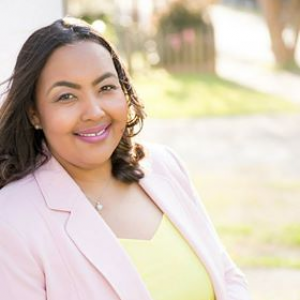Patient’s Corner: Living with Chronic Illness Vol. 3
By Dorothy Leone-Glasser
Breast cancer survivors face many challenges while going through treatment and in post treatment. They experience a wide range of physical, mental, emotional and spiritual pain. There are lingering side effects to treatment that are long term and can be hard to manage. Many times, the fear of what will happen is overwhelming. Cancer survivors live with fearing a recurrence, especially with Stage 4 Cancer. This is especially real for women of color, since they have the highest recurrence rates and the highest mortality rates.
I met Tiah at an Rx in Reach GA Coalition Capitol Day. Being a survivor of Cancer myself, we knew women we would have a special bond. When we look at the journey of a woman living and thriving beyond cancer, oftentimes they don’t get a chance to take a break from the day-to-day challenges of life. These women are mothers, daughters, sisters and aunties, caregivers and pillars of their families. They are leaders in their community and on their jobs and so much more. One of the biggest needs is how to manage or cope with their daily life challenges while healing from the devastation of cancer and the damaging toll of treatment. Patients seldom receive the information and counseling on how to re-enter life. Cancer survivors and their families and friends need the education, resources and guidance from a healthcare team that supports the health of their mind and body.
Here are some ‘Tips’ from Tiah:
- SEE ME AS A PERSON BEFORE SEEING ME AS A PATIENT. We are more than our disease. We have families, friends, jobs, hobbies, goals and dreams. When you are treating me as a patient, remember – I am not a “one size fits all”. I am uniquely me! Take time to learn a little bit more about me and what could potentially be barriers to my care.
- BE PATIENT WITH ME. What you see on the outside is not always a reflection of what’s going on the inside. As a patient, I may not always verbalize how I truly feel or the problems I face. Many patients don’t want to be seen as a burden so we just keep our superhero capes on and press our way through.
- CANCER IS COMPLICATED. SOMETIMES WE AREN’T GIVEN THE PROPER DIAGNOSIS OR ARE MISDIAGNOSED. Because I look healthy or are very young doesn’t mean I am not seriously ill. I know when something is wrong with my body. I need a care team that hears me.
- SOME DAYS I JUST DON’T HAVE THE STRENGTH TO ADVOCATE FOR MYSELF.
This is why having a caregiver/advoacte is so important.
- LIVING WITH A CHRONIC ILLNESS CAN BE VERY EMOTIONAL . Cancer comes with the challenges of side effects of treatments and drugs, isolation, fear and anxiety of disease progression or recurrence; all causing a rough ride on an emotional rollercoaster.

Founder & CEO,
My Style Matters
 Dorothy Leon Glasser
Dorothy Leon GlasserExecutive Director, Advocates for Responsible Care
Co-Chair, Georgia Bio Patient Advocacy Alliance
The post Patient’s Corner: Living with Chronic Illness Vol. 3 appeared first on Georgia Bio.





